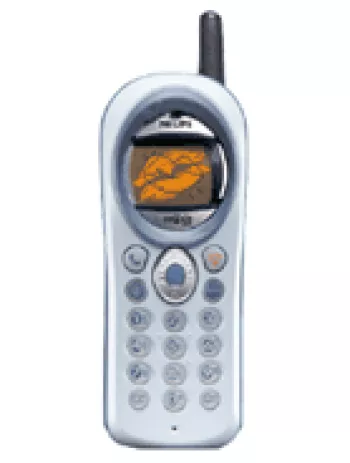
Network and Connectivity
The Philips 855 operated on GSM networks, specifically supporting the GSM 900, 1800, and 1900 bands. This tri-band capability ensured users could receive signals in many international locations. It included GPRS class 10 for data transmission, although it did not support EDGE, limiting its speed compared to later technologies. With no WLAN or Bluetooth, the Philips 855 relied on infrared for short-range data exchanges, a common feature at the time.
Launch and Market Status
Philips announced the Model 855 in the second quarter of 2004. By the standards of that period, it was packed with features. Despite its capabilities, it has been discontinued, much like many devices of its era, as newer and more advanced technology continuously enters the market.
Body and Design
The Philips 855 boasts dimensions of 85 x 47 x 25 mm and a weight of 91 grams, making it a compact and lightweight option for users. It used a Mini-SIM card, which was standard for that time. The device's aesthetic appeal was further enhanced by color variations including Harmony Silver, Relaxing Blue, Sensorial Black, and Natural White.
Display
The device featured a TFT display with 65K colors, offering clear visibility for graphics and text. The resolution stood at 128 x 160 pixels, with the ability to display 7 lines of text. Although not comparable to modern high-resolution screens, this display was adequate for the tasks typically performed on feature phones.
Memory and Storage
With an internal memory capacity of 9MB, the Philips 855 was capable of storing essential data and handling tasks efficiently for its time. It lacked external expandable memory options like a card slot, which limited its storage expansion capabilities. The phonebook had the capacity to store 500 contacts, each with up to 5 fields, and supported photo calls to aid in contact identification.
Camera
The main camera was VGA, and while it did not support video recording, it was suitable for basic photography needs of the early 2000s. Users who required advanced photography options would have found this phone lacking, but its inclusion of a camera was a notable feature at the time.
Sound and Alerts
The Philips 855 was equipped with a loudspeaker but did not include a 3.5mm jack for personal listening through headphones or earphones. It provided vibration alert and supported downloadable polyphonic ringtones, a highly appreciated feature at the time, allowing users to personalize their device sounds.
Communication Features
This phone supported several forms of messaging, including SMS, EMS, MMS, and Email. The inclusion of a basic WAP 1.2.1 browser allowed for rudimentary internet access, which was an advanced feature during its launch period. Users could also install Java applications thanks to its MIDP 2.0 framework, increasing its versatility with downloadable games, totaling four pre-installed with the possibility of adding more.
Battery Performance
The Philips 855 housed a removable Li-Ion 600 mAh battery, providing up to 400 hours of standby time and up to 4 hours of talk time. This was relatively standard for feature phones, balancing the need for energy efficiency and sufficient talk-time duration.
Summary
In summary, the Philips 855 represented a solid entry in the early 2000s feature phone market, embodying a balance between essential calling capabilities and innovative features of the time. Its design, connectivity features, and personalization options made it a competitive choice. However, its limited memory capacity and absence of certain modern connectivity options would be considered drawbacks today. Nevertheless, it played a significant role in the transition towards more sophisticated mobile communication technology.
Key Features of Philips 855
- Compact dimensions: 85 x 47 x 25 mm
- Lightweight: 91 g
- TFT display with 65K colors
- Photo call capability supporting 500 entries
- VGA main camera
- Infrared port for connectivity
- Support for SMS, EMS, MMS, and Email messaging
- Java MIDP 2.0 support for downloadable games
- Removable Li-Ion 600 mAh battery with up to 400 hours standby time
- Available in four color options: Harmony Silver, Relaxing Blue, Sensorial Black, and Natural White
Drawbacks of Philips 855
- No EDGE support, limiting mobile internet speed.
- Discontinued status, making it difficult to find new units or support.
- No external memory card slot, limiting storage expansion.
- Low internal memory of only 9MB.
- VGA main camera with no video recording capability.
- No selfie camera available.
- Lacks a 3.5mm audio jack, reducing audio connectivity options.
- Absence of WLAN and Bluetooth, limiting wireless connectivity.
- No GPS functionality for navigation.
- No built-in radio feature.
- Non-standard USB interface, if present.




























View Also
More Phones
All Rights Reserved +14266 Phones © Mobilawy 2025

























